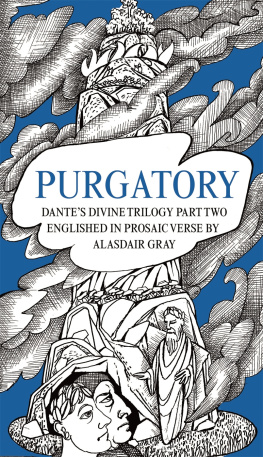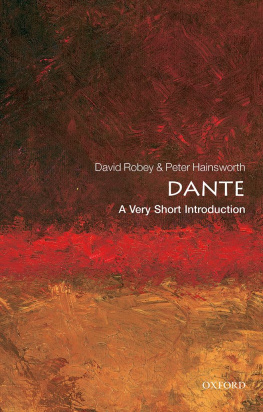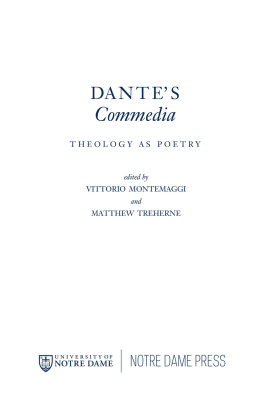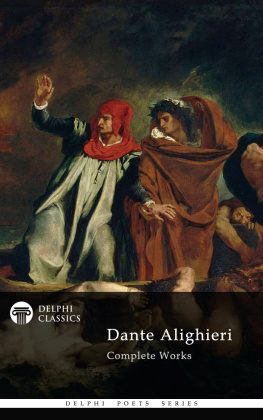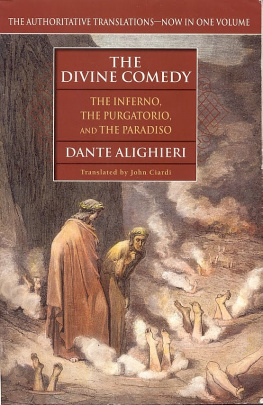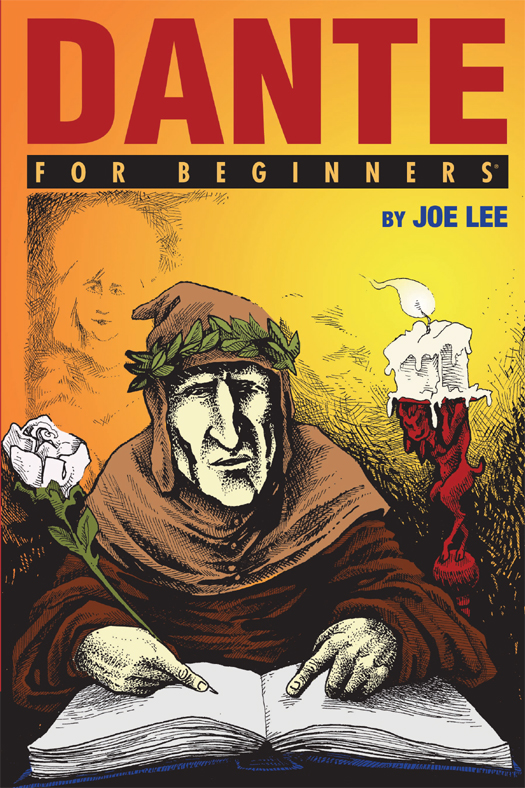For Beginners LLC
155 Main Street, Suite 201
Danbury, CT 06810 USA
www.forbeginnersbooks.com
Text and Illustrations 2011 Joe Lee
All rights reserved. No part of this publication may be reproduced, stored in a retrieval system, or transmitted in any form or by any means, electronic, mechanical, photocopying, recording, or otherwise, without prior permission of the publisher.
A For Beginners Documentary Comic Book
Copyright 2011
Cataloging-in-Publication information is available from the Library of Congress.
eISBN: 978-1-934389-68-3
For Beginners and Beginners Documentary Comic Books are published by For Beginners LLC.
v3.1
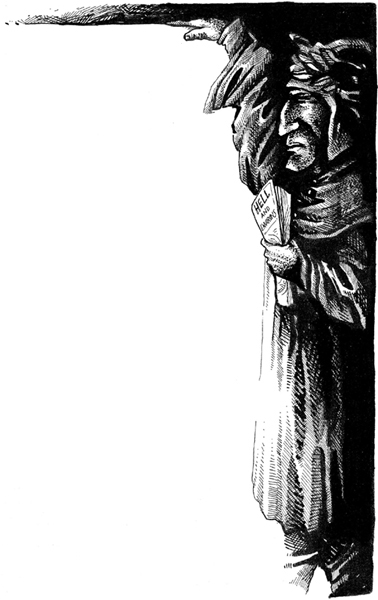
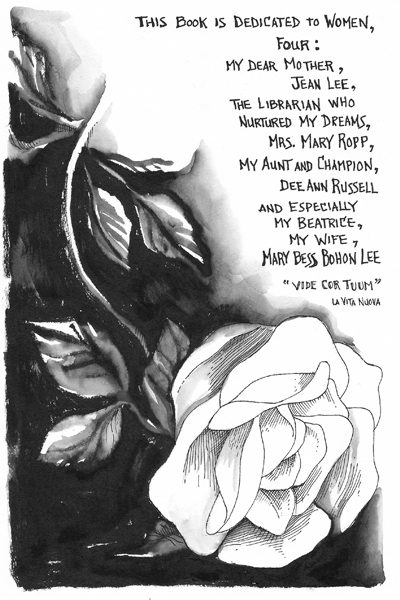
He had the face of the Wicked Witch of the West, and by some reports, the imperious disposition to match.
He was a failed politician in his own city, and was exiled for his pains.
He claimed a lifelong love for a woman with whom he may have exchanged only a few sentences, and more often than not, she treated him with disdain.
He was born 700 years ago in a world fraught with petty but tragic intrigue, common brutality, and horrendous inquisition, all performed at the whim of both a church and state that met with his approval.
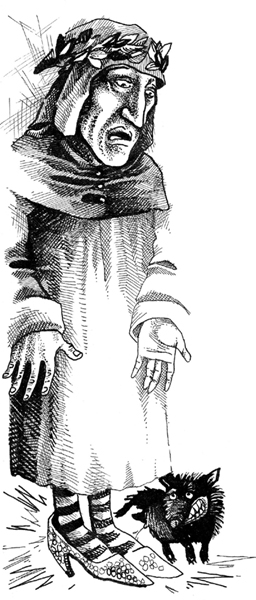
He was a poet whose greatest work was written in his own vulgar tongue, a language he believed would be made the common speech of an all-encompassing European Empire. It was finished almost literally on his deathbed, and could not have been read in its entirety during his lifetime, so why should anyone care to read it, or about him, now?
Why? Because he was Dante Aligheri, the greatest tourist (even if the tour was only a literary fantasy) this world and the next has ever known and, when one sees past the prurient and horribly satisfying grotesqueries of his sojourn in the inferno, he is, and will forever be, the great poet, the prophet, the visionary champion of love.
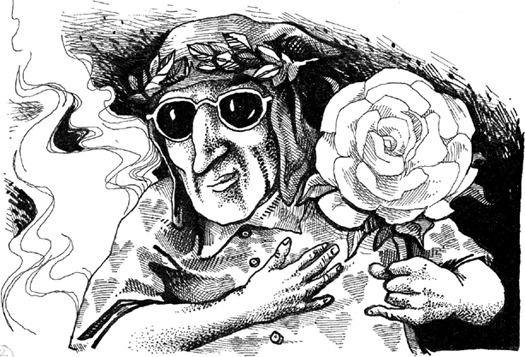
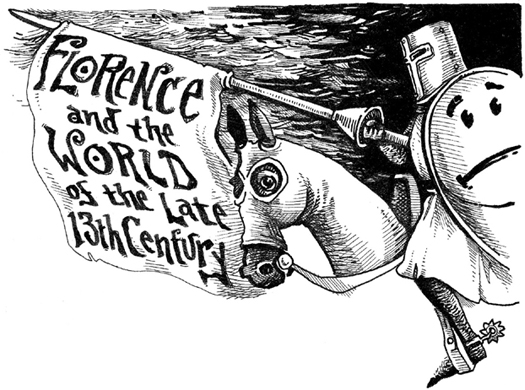
LOVE! Love was certainly the one thing that thirteenth century Europe could have used a little of. Let it be said that this was neither the best of times, nor the worst of timesit was a time of transition. Commerce was on the rise, pushing out the ancient regime: the feudal system. Wealth was becoming the standard of power, and those that claimed their titles from a higher power were not pleased to have upstarts stinking of savvy and lucre taking over. This struggle was becoming particularly pointed in the northern half of Italy. Geographically, Venetia, Tuscany, Lombardy, Emilia, Romagna, and the other regions were perfectly located at the crossroads of trade between north and south, east and west. Cities like Venice that might have been nothing more than fever smitten backwaters were thriving, prospering bastions of the new capitalism.
No longer would populations depend on fertile farmland or abundant fisheries for their feed. Trade in silk, perfumes, and every other commodity that might be desired could put ample quantities of food on the table. Smarts were becoming more important than mail-coated brawn. And those old hackers and slayers with tiaras on their brows and swords in their hands werent about to stretch out on their gothic tombs just yet. The ironclad boys owned the land the caravans had to cross to get from city to city, and if you were carting goods on their roads, they demanded you pay their tolls.
The merchants balked, and where taxes pinched painfully in the wallet, deaths fingers would not long be idle. The Guelph party was born to stay the miscreant hand of the Ghibelline nobs; thus city warred against city, party against party, and the gold and green landscape of northern Italy was painted red with Latin blood.
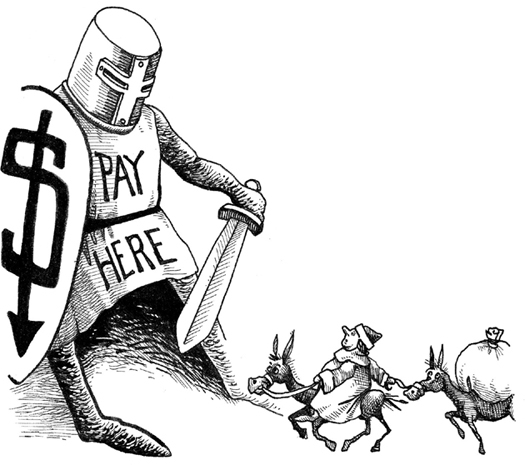
The Ghibellines were eventually defeated, for they, the noble landed class, had their day and were forced to retire to the darkness of history.
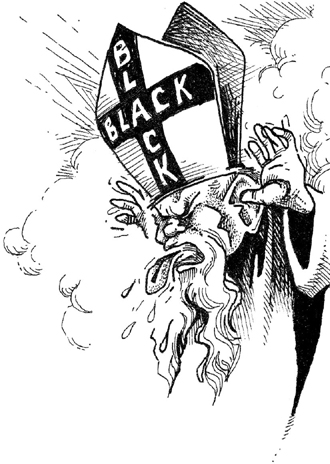
However, all was not exactly hunky-dory for the Guelphs, as they had their own painful separation into two rival factions: the whites and blacks. The white party saw the papacy as a threat to their legitimate interests and thought Rome should be the seat of religious authority and not temporal power. They longed for the return of the Roman Empire.
The blacks were not impressed with any romantic returns to the purple and thought rendering unto the pope was a better proposition than unto Caesar (as long as the pope was suitably reasonable in his request for rendering). So black mixed it up with white and lord, it all became a confusing shade of gray.
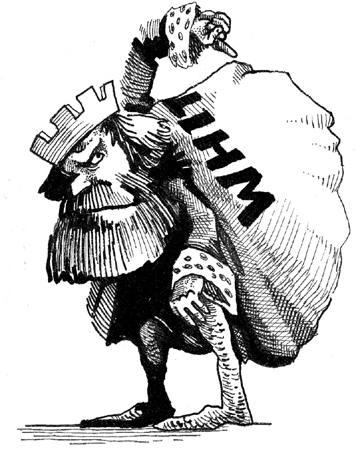
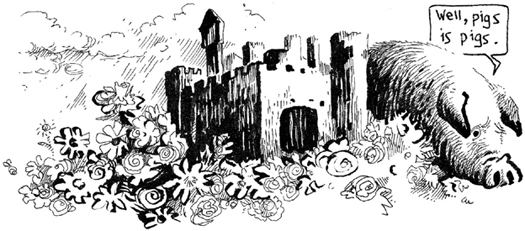
Florence was right smack in the center of all this turmoil, and even without this ongoing political folderol, the city had plenty of other problems to contend with. It had grown about three times as large in the thirteenth century as it had been in the preceding years, expanding far beyond the wall built during the Roman Empire.
New walls were eventually erected at the end of the century, taking fifty years to complete. Walls were very important for any polis at the time, because when visitors came to call, they often knocked with battering rams and rarely left with a cheery how-de-do. But the walls were also dangerous for what they kept inside.
Florence, so called for the abundance of flowers that grew there, was a steaming cauldron of pestilence and sewage, like any medieval city. Only the richest Florentines could afford that modern convenience: the cesspool. The rest must make do with dumping their chamber pots into the street, where errant pigs and dogs performed their work as sanitation engineers, and a good strong rain would hopefully rush it all into the river Arno, which burbled its way through the town.









